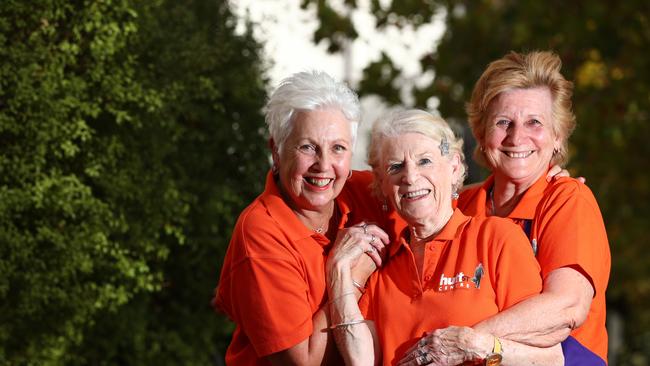CHARITIES urged to stop using rough sleepers as the faces of homelessness.
South Australian agencies at the frontline of welfare services say the face of homelessness is changing.

National
Don't miss out on the headlines from National. Followed categories will be added to My News.
AGENCIES at the frontline of homeless services are calling for a rethink on how homeless people are portrayed, as a growing number of South Australians find themselves without a roof over their heads.
Alice Clark, the executive director of ShelterSA, the state’s peak housing body, has also called for charities to stop using stereotypical images of homeless people as rough sleepers, to get South Australians to understand the true extent of the affordable housing crisis.
“Every time we talk about homelessness, we talk about people like the rough sleepers in the city, but we need to change the conversation to one about the broader issue of housing,” Dr Clark said.
“We need to think about the children and young people that we don’t see on the streets but are desperately needing a place to call home.
“I get really frustrated when our service providers are using the images of people lying on the street for sympathy, but in a way they are perpetuating some of those stereotypes.”
The call comes as new Australian Housing and Urban Research Institute data shows that between 2011 and 2016 SA had the second greatest increase in rough sleepers in the country – 51.2 per cent – from 256 to 387.
South Australian Council of Social Service CEO Ross Womersley says there is a much wider group of homeless people who aren’t living rough and are much less visible. “Just responding to rough sleepers isn’t going to address the long-term issue, in large part because the bulk of people who become homeless don’t end up on our streets,” he said.
“The reason people are homeless is because they find themselves in a position where, for one reason or another, they just don’t have a roof over their head where they feel safe and secure, and they can afford to pay for.
“So unless we address housing affordability, we are always going to have people who can’t find places to live.”
His sentiment was supported by Anti-Poverty Network SA co-ordinator Pas Forgione.
“I have met people who were previously in well-paid jobs, or who ran successful small businesses, who have ended up homeless. A few changes can be all it takes,” he said.
Hutt St Centre development and partnerships manager Mike Francis says people experiencing homelessness now have higher levels of education and a greater history of employment that ever before.
“It is impossible to generalise or stereotype homeless people. Their life stories and circumstances are all different,” he said.
Mission Australia state director Noel Mundy says SA needs more affordable housing, including social housing, for people on lower and moderate incomes. “We also need commitment from governments to ending homelessness by 2030 by ... delivering rapid access to the housing and support people need if they do lose their own home,” he said.
Originally published as CHARITIES urged to stop using rough sleepers as the faces of homelessness.
